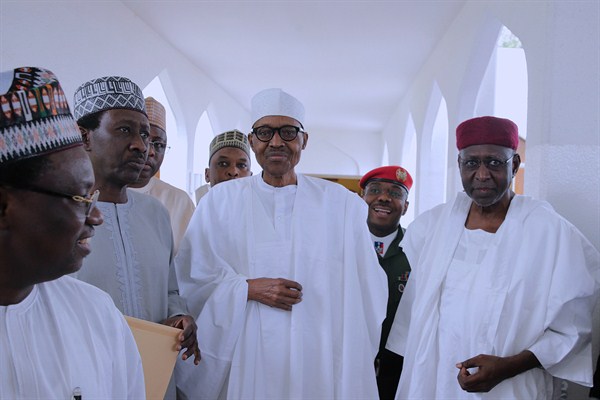From Jan. 19 to March 10, Nigeria’s 74-year-old president, Muhammadu Buhari, took an extended medical leave in London. After returning home, he remained weak; sometimes he missed Cabinet meetings and appeared gaunt in photographs. Then, last week, on May 7, he left again for London, framing the trip as a “follow-up” to his earlier leave.
Unlike the late Nigerian President Umaru Yar’Adua, whose prolonged incapacitation in 2009 and 2010 caused a constitutional crisis, Buhari has avoided short-term turmoil by formally designating his vice president, Yemi Osinbajo, as acting president during his absences. Whereas Yar’Adua’s inner circle clung to power and sought to prevent then-Vice President Goodluck Jonathan from acting as president, Buhari has shown full confidence in his deputy. A slight change of language in the most recent temporary transfer of authority, however, may indicate that Buhari’s inner circle is guarding its man’s position more jealously. For his part, Osinbajo has projected competence and confidence, winning praise from elites and ordinary Nigerians alike.
But if Buhari’s absences have been well-managed so far, the broader uncertainty is problematic for Nigeria. Fears are growing that Buhari will not be able to serve his full term, which runs through May 2019. His death or incapacitation would likely trigger the kind of all-consuming political infighting that could distract politicians’ attention from Nigeria’s many critical challenges. Those challenges include a limping economy, tensions in the oil-producing Niger Delta, a lingering Boko Haram insurgency and massive humanitarian crisis in the northeast, and various forms of intercommunal strife.

